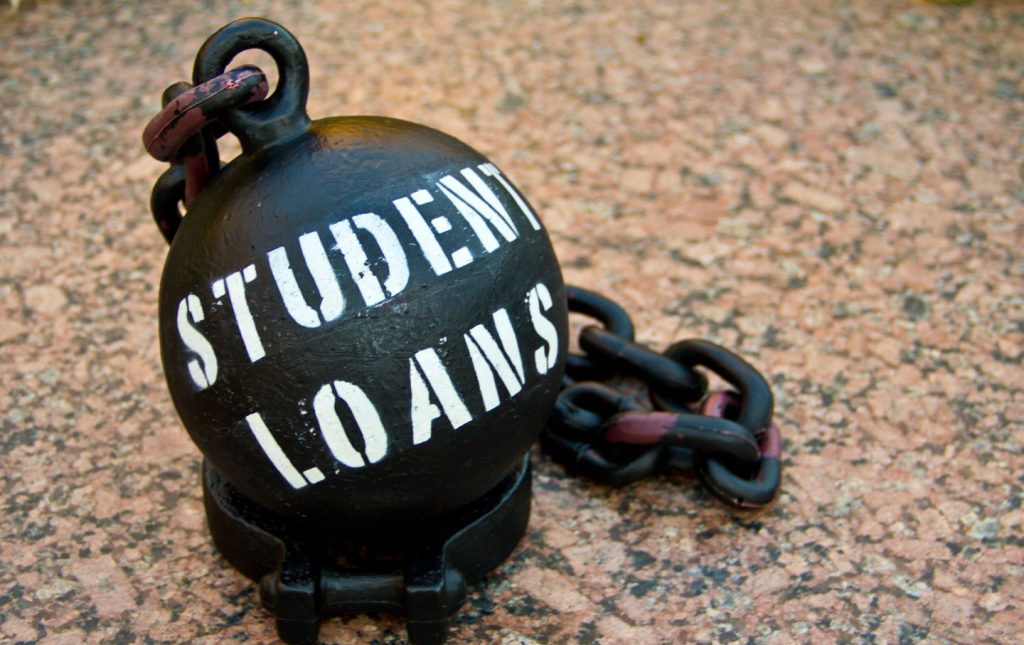
By Charlene Crowell
While much of the nation grapples with multiple adjustments attributed to the coronavirus pandemic, a rare bipartisan effort in recent days united lawmakers to reject an ill-advised Department of Education push against financial fairness for student borrowers. The lawmakers’ efforts were to allow a 2016 rule to stand unchanged.
Without the March 11th vote, borrowers of student loans taken out after July 1st would have little ability to secure discharge of these loans if incurred at fraudulent, mostly for-profit institutions. Hundreds of thousands of students are already deeply in debt for educations whose benefits never materialized due to misrepresentations like job placement rates, graduate incomes, and the ability to transfer credits earned.
Passing the upper chamber on a 53-41 roll call vote, 10 Republican members representing 9 states joined their Democratic colleagues to preserve the federal student loan rule known as the Borrower Defense to Repayment (BD).
“We need a policy in place that will allow defrauded students the chance to have their loan debt forgiven,” noted Alaska Senator Lisa Murkowski, “while protecting good colleges and taxpayers.”
“These for-profit colleges are the coronavirus of higher education,” remarked Illinois’ Senator Dick Durbin, who is leading his chamber’s efforts to halt DeVos’ rule.
Echoing similar sentiments was New York’s, Senator Chuck Schumer.
“With this vote, the message to the Trump administration and the predatory institutions Secretary DeVos is propping up is clear: you can’t cheat students and get away with it,” said Schumer.
Originally adopted by the Obama Administration, the rule was estimated to help relieve $17 billion in federal loans for defrauded college borrowers. This sector has been characterized by its high tuition costs, as well as its targeting of distinct demographic groups — students of color, veterans, and low-incomes – that together led to large numbers of vulnerable students incurring unaffordable debt through a combination of private and federal loans to financially support the artificially high cost of their studies.
Many of the colleges that defrauded borrowers closed abruptly under the weight of investigations and sanctions – Corinthian Colleges, ITT Tech and Art Institutes. Other career colleges continue operating but with scant accountability from the Trump Administration and the Department of Education.
With few students actually graduating from largely for-profit career and technical institutions, debts incurred could not be repaid on the low earnings and lack of marketable skills and knowledge. According to a report by the nonprofit Institute for College Access & Success (TICAS), 53% of defrauded students’ debt would be forgiven under Obama-era rules. That number falls to just 3% under DeVos’ re-write.
By its own estimates, the Education Department expects that next year – 2021 — approximately 200,000 students will experience similar misconduct.
Even so, the Department of Education’s 2019 BD version anticipates only 3 cents of every loan dollar would be canceled for defrauded students, and the institutions would repay a penny for documented misconduct. Additionally, the opportunity for loan discharge for groups of borrowers experiencing widespread mistreatment would end. If allowed to take effect, the DeVos version would require each student to individually apply and prove their claim – despite evidence of systemic or widespread mistreatment.
Other key changes identified jointly by TICAS, the National Consumer Law Center and the Century Foundation include:
- The time limit to file a borrower defense claim will be cut in half, from the current six-year to three and only after borrowers leave school;
- Even if the school concedes it made false, or deceptive promises, borrowers filing a BD claim will still be required to show specific types of harms incurred; and
- Neither judgments against the schools or a breach of contract would be sufficient grounds for borrowers to receive loan discharge.
Two other advocacy groups, The Project on Predatory Student Lending and Public Citizens jointly filed a related lawsuit in February on behalf of the New York Legal Assistance Group.
With both chambers of Congress having voted to preserve the 2016 BD rule, the next step is presidential action. Should President Trump sign the measure, he would reject Secretary DeVos’ rule in favor of students and taxpayers. If he vetoes the resolution, Congress will face a pivotal decision on whether to override that veto.
For Ashley Harrington, Federal Advocacy Director with the Center for Responsible Lending (CRL), preserving the BD rule is not Congress’ only obligation to higher education.
“We commend the bi-partisan members from both chambers for overturning a rule that would have allowed students and taxpayers to be ripped off by for-profit colleges. We also encourage Congress to advance a comprehensive reauthorization of the Higher Education Act that holds true to its original values by opening the doors of higher education to low-income students and students of color,” said Harrington. “We need a higher education system that is truly affordable, reducing the need for students to borrow for college, and provides a pathway out of student debt and into economic security.”
Charlene Crowell is a senior fellow with the Center for Responsible Lending. She can be reached at charlene.crowell@responsiblelending.org.




